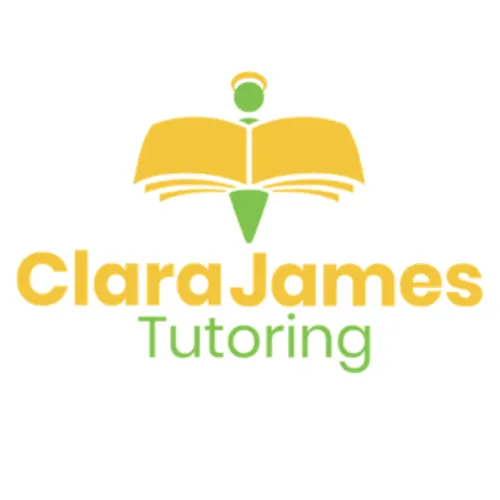Clara James Tutoring
BLOG POSTS

General ideas for revising
I hope you’ve had a good week. This week I’ve been asked 3 times about revising and English in general, so I thought I’d write about that this morning.
If I was organised, I would have written myself a series of notes to work from so that there was some form of flow to this, but I often find when I try the brain goes blank and it’s a bit like when someone says: what shall we talk about?
Revision:
Try to use 5 or more colours
when you’re revising, apparently it opens more neuropathways making it easier to remember. But on a more practical day-to-day level, when you come back to revise you are more likely to look at the bright, colourful sheet of paper than you are a sheet with an abundance of black text.
If you have set yourself a revision timetable and on (for example) Monday, you are going to do 90 minutes of English. Decide in advance what you will do in those 90 minutes rather than just sitting there making the decision and not achieving anything.
Don’t be over ambitious
with what you can achieve, you will set yourself up for failure, loose heart and end up not doing any. Start early with maybe just 15-30 minutes a day. That’s better than nothing and once you’ve gotten started you may find yourself doing more.
Don’t think you have to sit at a desk to revise.
Where do you feel most comfortable? Do you like music playing in the background or do you prefer it to be quiet. Have the things that you will need around you before you start so that you don’t get into the flow then realise you need to go and get some water, or your pen’s run out, or you need your calculator, etc.
Read.
Read anything but try to spend some time each day reading. It will help you on so many levels: creative writing, vocabulary, spellings, grammar, etc. If you can’t bring yourself to read, try audiobooks.
Get used to analysing things.
Many of the marks for English are in the analysis so when you’re watching something, listening to something think about why? Why are they telling you this, why are they using those words? what are they trying to persuade you of? The news is perfect for this: think about the people they are interviewing: why? How knowledgeable are they on the subject or are they just reinforcing the view of the article? Newspaper headlines: have they used any techniques such as alliteration or exaggeration to make it more appealing to the reader.
If it’s a day when you really can’t be bothered to revise watch YouTube clips on what it was you had intended revising. You’re still learning but in a way that takes a whole lot less effort…
Use a variety of resources to revise:
YouTube, create mind maps, look at past papers and their mark schemes. For some subjects MME provides model answers as well. Or you could ask ChatGPT for a model answer to help you learn how to structure it or the type of sentence openers you can use, etc.
Speaking to someone the other day, they said they used to stick their post stick notes to the back of the bathroom door so that whilst they were brushing their teeth or on the loo, they could spend their time constructively. Have them around the house so that you start to see them with your subconscious so that they become more natural to you.
Write them yourself, you’ll remember them better.
When J did his English Lit A’ level exam he created images from all of his quotes. So, for example: Macbeth: Is this a dagger I see before me?
He drew a dagger, an eye, the see, a bee, the number 4, and a picture of him.
The time and effort he took to create them well and truly solidified them in his brain. He again had them around his room, but we would also take the dog for a walk (never far, she only had 3 legs and didn’t like to walk) and talk about them as we walked.
KEY POINT
When it comes to the English Lit exam, you are normally told to do point, evidence, analyse, link it back to the question.
I would suggest that you do point: The environment is in part responsible for creating a suspicious atmosphere within this extract.
Then use several pieces of evidence and analyses to backup your point. By doing this your analysis doesn’t need to be so deep as you are spreading it over several points. So, for example you might talk about how the repetition of ‘street after street’ highlights how the whole city is deserted it’s not just an isolated area. (analyse this a bit more deeply this is just to give you the gist). Within the same point you might then talk about the section where it states that you yearn to see a policeman, or how it is 3am on a dark winter’s morning. Talk about the implications of the fact he is out at 3am and it’s dark. Rarely does anything good happen in the dark, and its winter and how that is the end of the seasons, maybe also reflecting on how it is the end of life as we know it. All of which help to create a suspicious atmosphere in this part of the text.
It is so much easier to structure it like that because you’re less likely to repeat yourself and your analysis like I say, can be spread thinner rather than having to think of something really deep and profound about just a couple of words.
Something else I would suggest is that you are subtle about your quotes. It’s a bit like if you have been given a detention at school. You don’t want to come in and make a public declaration to your parents, instead you want to discretely drop it into conversation and hope they don’t register it in the moment. Your quotes are the same. Try to make them run smoothly rather than announcing them in advance.
If you struggle with sentence openers let me know. I have sentence openers for questions 2 and 3 English Language Paper 1 and will get question 4 done before the end of the week, I will happily send them over to you.
You can get the English Language Paper 2 sentence starters here
For now, my brain is closing down but I hope that has helped a bit. Any questions at all, please do ask.
Good luck and remember at the end of the day, the effort you put in to the revision is what you should be proud of, if you walk into the exam knowing that there was nothing more that you could have done, you should walk out with your head held high regardless of the results.
Morning,
I hope the week is going well.
So many people seem to be doing D of E and work experience
at the moment, good luck if that’s you and if you’re at Marlow Camp next
fingers crossed for good weather!
I’ve just finished a lesson on division. It seems to be
something that messes with the brains of so many people.
I found it got easier when I stopped thinking about it as
division and instead thought about it as multiplication. So, if for example I
had the question 396 divided by 3, I would look at it as 3x what = 3. My answer
would be 1. How many times would I need to multiply 3 to get to 9, (my answer
would be 3). Then 3x something = 6. My answer would be 2. Giving me the overall
answer of 132.
I know that’s a really simple example but hopefully it explains
my point.
Thankfully in schools they don’t often seem to need to do
long division, but I’ve worked with a couple of adults (generally nurses for
some reason) who have needed it.
I think I’ll explain this one in a video, as it will be too
complicated to explain it with words as bits get put all over the place. I hope
this makes sense though:
Enjoy the rest of the week and speak soon,
Dawn

